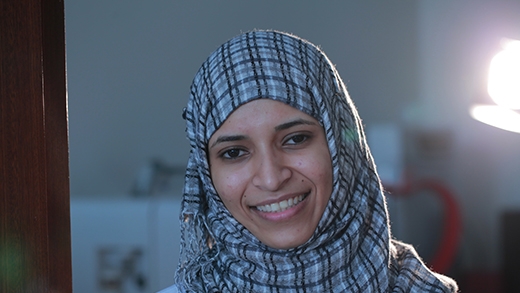So far, the project’s progress has been good, especially given that most Yemenis were unfamiliar with the idea of internships and Business Development Services (BDS) when the government-backed Small and Micro Enterprise Promotion Service (SMEPS)—a body established to develop the capacity of businesses in Yemen—launched the project in August 2013.
As a result, SMEPS had to put a lot of work into promoting Wathba. It used social and traditional media to publicize it, held workshops and visited hundreds of firms and universities in Sana’a and Aden. (The current political upheaval means Yemen is also still far from having the ‘enabling environment’ development economists often require before they launch initiatives.)
The outcome has been to attract large numbers of SMEs and young graduates. More than 4,000 young people, and more than 800 firms, initially applied to take part—much stronger interest than anticipated. This reflects Yemenis’ ability to adapt to new circumstances, however difficult. About 200 firms were selected for business development services and the same number of graduates for internships.
Nearly US$1 million has been allocated for the internship program and more than US$2 million for SMEs. As a result, most SMEs have adopted new management and business practices. About 190 firms from the first group of applicants bought financial management systems, conducted market research, and pursued product development initiatives and/or conducted promotional and marketing campaigns. They reported more productivity and improvements in the quality and competitiveness of their goods, as well as increases in their market share, exports and profitability. Some went to international trade fairs in the hope of expanding into new markets.
The Wathba project has made an effort to bridge the distance between interns and SMEs by introducing “learning while earning”. Young people were placed in six-month internships in Sana’a and Aden and exposed to skills in leadership and interpersonal communication, technology and teamwork. The final goal was not of training being an end in itself but to secure interns jobs.
Of 96 interns, 60 managed to turn their internships into jobs after six months—the high rate reflecting the fact that their initial placements were based on skills the firms needed, which in turn made interns more likely to be able to keep their jobs. Business owners who took interns on described them as committed and hard-working, saying the experience had altered their views toward being more open to recruiting ‘fresh’ graduates.
Wathba’s success to date is considered promising—a viable approach to improving young livelihoods, one suggesting that more such initiatives could help the young and ambitious lead even conflict-affected communities out of poverty. The pilot project’s example should also help develop Yemen’s local capacity for replication, learning and development.

